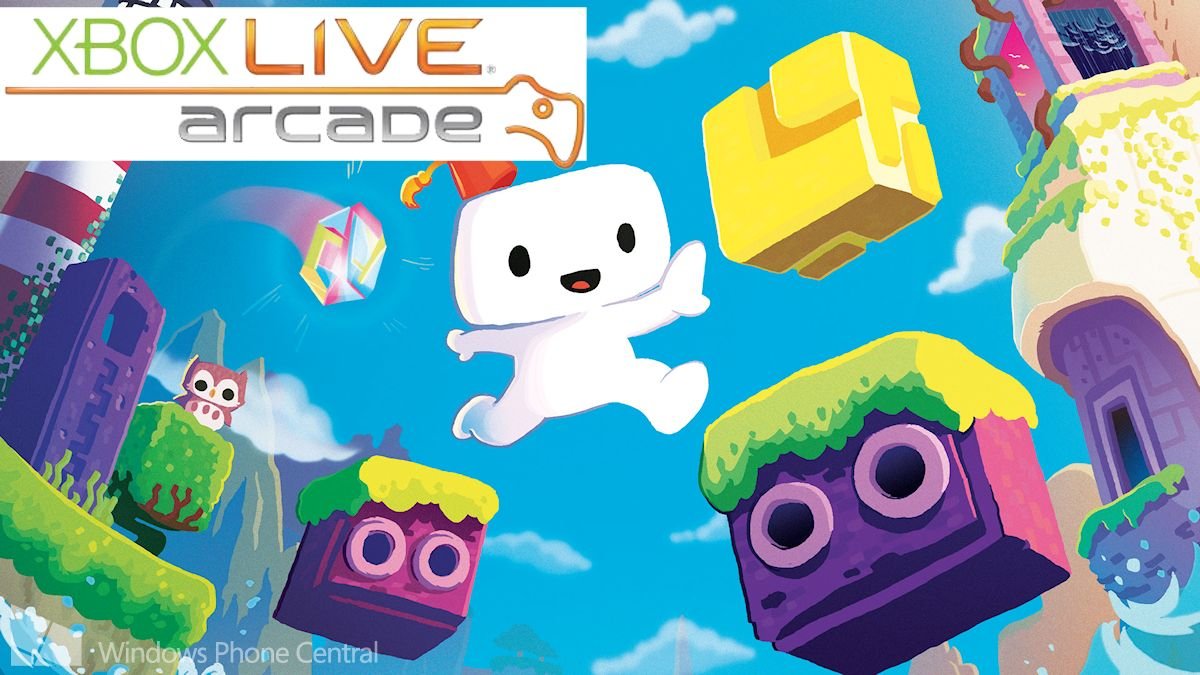Microsoft drops update fees for XBLA games. Could they be courting indie developers?

If you follow our Xbox Windows Phone editorial coverage, then you know I’ve often been critical of the Xbox certification process. Microsoft created a set of certification policies back in the Xbox 360’s early years that were intended to ensure the highest quality game releases and discourage the release of buggy games. These same policies were then extended wholesale to subsequent Xbox platforms, including Games for Windows Live (PC), Windows 8, and Windows Phone.
Problem is the aging and restrictive policies weren’t designed to reflect the changing nature of the games industry, and certainly not to account for the differences in development between consoles and platforms like Windows Phone. Modern game development isn’t about shipping a game and then trying not to ever update it. No, games these days (whether they have In-App Purchases or not) are updated continuously throughout their life spans.
Indie hits like Minecraft and top smartphone games like Angry Birds and Cut the Rope would never have remained as relevant as they are without the constant stream of updates and support from their developers. And the Xbox certification policies dating back to 2005 have been nothing but an impediment towards that kind of support. BUT it turns out that Microsoft discreetly relaxed their policies towards updating games earlier this year – on the Xbox 360, at least.
Cost prohibitive

Double Fine's Iron Brigade for GFWL couldn't be updated due to both the restrictive Xbox certification process and its costs.
The existence of title update fees first came to public light at the beginning of 2012 when Tim Schafer of indie developer Double Fine revealed to Hookshot that Microsoft charged approximately $40,000 for game updates:
“But the indie community is now moving elsewhere; we’re figuring out how to fund and distribute games ourselves, and we’re getting more control over them. Those systems as great as they are, they’re still closed. You have to jump through a lot of hoops, even for important stuff like patching and supporting your game. Those are things we really want to do, but we can’t do it on these systems. I mean, it costs $40,000 to put up a patch – we can’t afford that! Open systems like Steam, that allow us to set our own prices, that’s where it’s at, and doing it completely alone like Minecraft. That’s where people are going.”
Consider that many XBLA games sell less than 20,000 copies and a sales figure of 100,000 copies is considered a smash hit. Whether a game sells for $10 or $15, Microsoft automatically takes a slice of 30% or so off the top (as does any digital marketplace), and then the publisher which Microsoft requires for games to even get Xbox status takes another chunk of the change. So a $10 game that sells 20K copies only brings in about $100,000 for the developer. Spending 40 percent of your profits to fix a few bugs just doesn’t make sense in that scenario, and so many games go without updates.
XBLA opens up

Yesterday Eurogamer reported that Microsoft has stopped charging for Xbox 360 title updates. Spokesperson Larry Hyrb (AKA MajorNelson) soon provided partial confirmation via Twitter:
Get the Windows Central Newsletter
All the latest news, reviews, and guides for Windows and Xbox diehards.
“FYI for those asking: Microsoft eliminated fees for Title Updates on Xbox 360 Arcade games in April 2013”
So far, it looks like the removal of updating fees applies only to XBLA games, not retail Xbox 360 titles. Much remains unclear about the policy change, such as whether it applies to games published before April or not.
Phil Fish, developer of XBLA hit Fez (pictured above), famously declined to issue a second Fez title update last year when a save data corrupting bug slipped through in the game’s first patch. Since then he has become an outspoken critic of the Xbox certification policies as well as the lack of promotion Microsoft provides for third-party games it publishes. He has, however expressed interest in producing the long-desired second update to Fez IF the lack of update fees retroactively applies to existing XBLA games.
Tight lips can sink ships too

Day Z might come to Xbox One if Microsoft drops update fees on their new console as well.
Dropping XBLA update fees was unquestionably a smart move, but Microsoft dropped the ball slightly by not publicizing the change. Put simply, nobody (who hadn’t submitted an update during that time) knew about the change for three months.
Xbox platforms are widely perceived as unfriendly to indie developers, and advertising a friendlier update policy for downloadable titles could only improve that perception. Developers who have previously chosen to avoid Xbox or leave it behind might even be swayed to come onboard. And assuming the change is retroactive, existing games in need of updates like Fez could have been patched by now.
The delay in acknowledging the update policy change is evidence of two problems we’ve been lamenting for a good while now:
One, the culture of secrecy within Microsoft means that its staff is often too afraid to reveal meaningful information outside of the company even when there is no conceivable harm in doing so. Yeah, it’s perfectly logical to try to obscure information that would help competitors or make the company look bad in some way. Information that makes Microsoft look good, though? They should want those details out there, working in their favor.
Secondly – and this sort of grows out of the first problem – Microsoft’s gaming-related PR needs a lot of improvement. I’ve explained at length the weaknesses in their promotion of Xbox Windows Phone and Windows 8 games. And just think of the Xbox One DRM policies that received so much ire from the console reveal event all the way through E3.
Those Xbox One policies actually carried some innovative benefits to internet connected consumers, but Microsoft did very little to sell the benefits to the media or consumers. The public discussion focused on the policy’s negatives (no arguing how bad the internet requirement would’ve been for certain users) when it could have centered on the advantages of disc-free installs and a generous family sharing plan.
Ripple effect

One effect of all that secrecy is that we still don’t know how the change in title update policy affects other parts of the Xbox ecosystem. We can’t say for sure whether or not retail Xbox 360 title updates still require a fee, though it seems likely they do since Major Nelson only mentioned downloadable Arcade games in his tweet.
It wouldn’t surprise me if the change either currently applies or will soon apply to Windows Phone and Windows 8 games as well. Games for Microsoft’s mobile platforms are inherently downloadable and basically the equivalent of XBLA games in most ways. Microsoft could have eased restrictions on their Xbox phone and tablet games already without telling anyone. We’ll do a little prying and see what turns up.
At this stage, the platform that stands the most to benefit from relaxed update policies might just be the Xbox One. Remember, Sony has come out very strongly in favor of indie developers on the Playstation 4, wooing away developers like Phil Fish and 17-BIT, the makers of Skulls of the Shogun (that's their PS4-exclusive Galak-Z above). Meanwhile, the perception that Microsoft is unfriendly towards indie developers has caused other small developers like the creators of Day Z (who specifically mentioned barriers towards updates) to favor Playstation 4 over Xbox One as well.
If Microsoft opens the Xbox One up more for indies – including dropping title updates fees (which actually benefits game makers of all sizes), they can start repairing some of the bridges that have burned down in recent years. And launch consoles need all of the software support they can get. We don’t want Playstation 4 getting praises for its strong indie offerings and variety of software while the Xbox One sits by with a smaller arsenal of games.
Source: Eurogamer; Thanks to Jigar for the tip!
Paul Acevedo is the Games Editor at Windows Central. A lifelong gamer, he has written about videogames for over 15 years and reviewed over 350 games for our site. Follow him on Twitter @PaulRAcevedo. Don’t hate. Appreciate!
